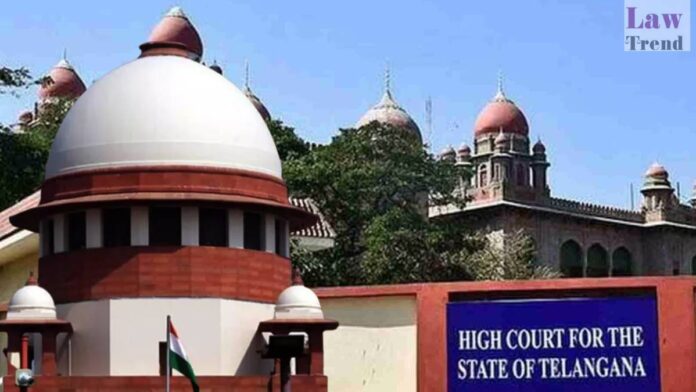The Supreme Court on Monday ordered a litigant and his legal team to tender an unconditional apology to a sitting Telangana High Court judge after they levelled what it described as “scurrilous allegations” in a politically sensitive case.
A bench comprising Chief Justice B.R. Gavai and Justices K. Vinod Chandran and Atul S. Chandurkar was hearing a suo motu contempt case arising from a transfer petition filed by N. Peddi Raju. The petition had accused the judge of bias and impropriety for quashing a criminal case under the SC/ST Act against Telangana Chief Minister A. Revanth Reddy.
“We cannot permit judges to be put in a box and allow any litigant to make such allegations. Judges of the High Courts are constitutional functionaries with the same respect and immunity as Supreme Court judges,” the CJI observed, terming the conduct “a disturbing trend” in politically charged matters.
Senior advocate Sanjay Hegde, appearing for one of the lawyers served with contempt notice, offered an “unconditional and unreserved apology” and explained the circumstances in which the remarks were made. The bench, however, stressed that both litigants and lawyers could be held guilty of contempt for scandalising the judiciary, citing a Constitution Bench precedent.
The court directed that the already disposed matter be reopened in the Telangana High Court and placed before the same judge within a week. Peddi Raju has been ordered to present an unconditional apology, which the judge will decide whether to accept within another week.
The CJI referred to a recent three-judge bench ruling favouring acceptance of genuine apologies over punitive action, remarking, “Wisdom lies in forgiving rather than punishing.”
On July 29, the apex court had issued contempt notices to Raju, his advocate-on-record Ritesh Patil, and others, declining their request to withdraw the petition. “Scurrilous allegations have been made against the sitting judge of the Telangana High Court… it is not only a litigant but also a lawyer who signs the petition who is guilty of contempt,” the bench had then said.




